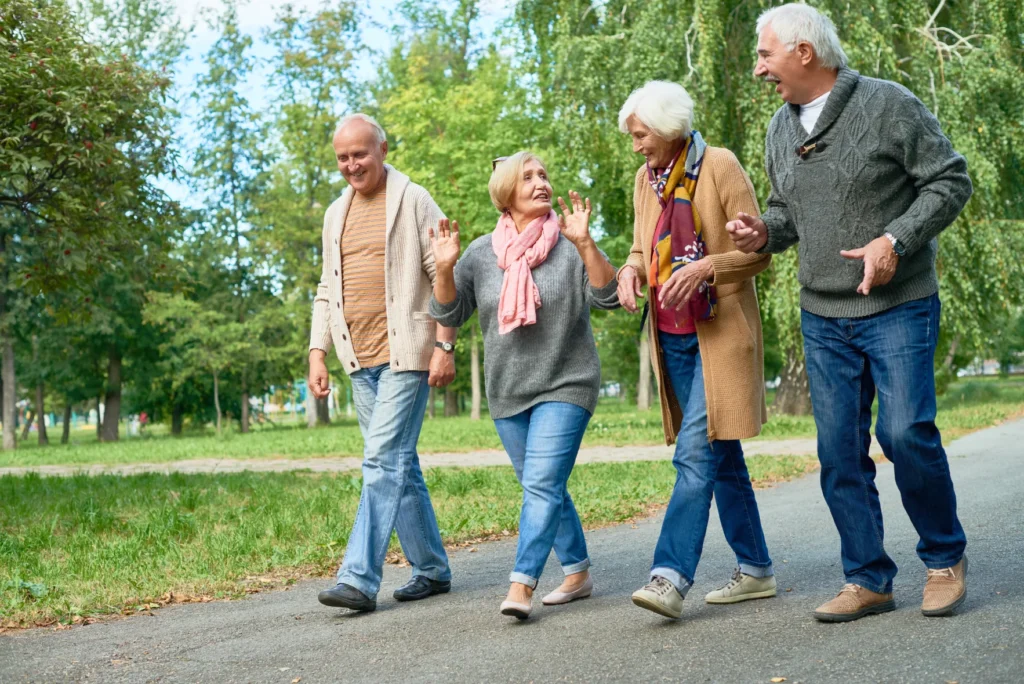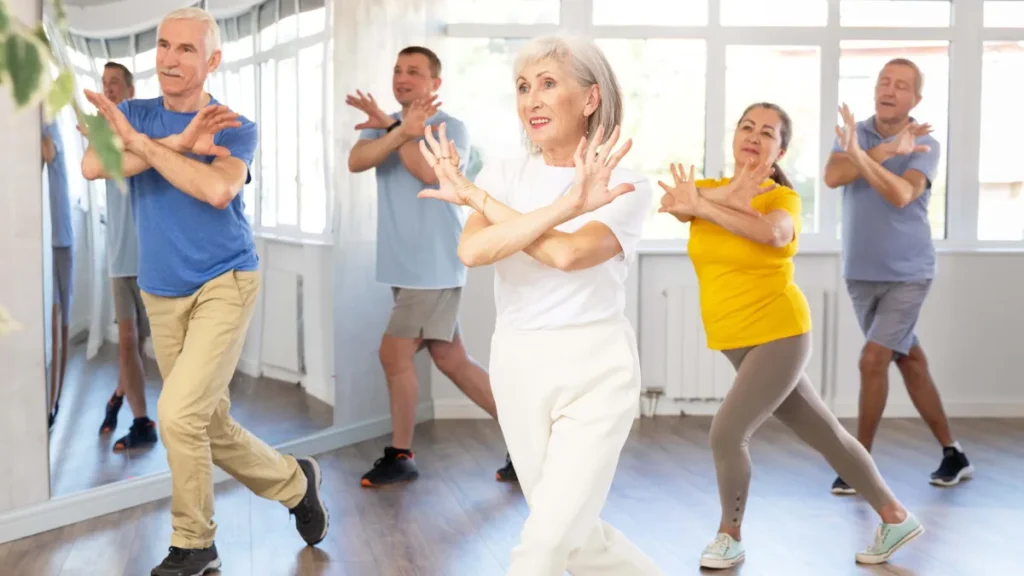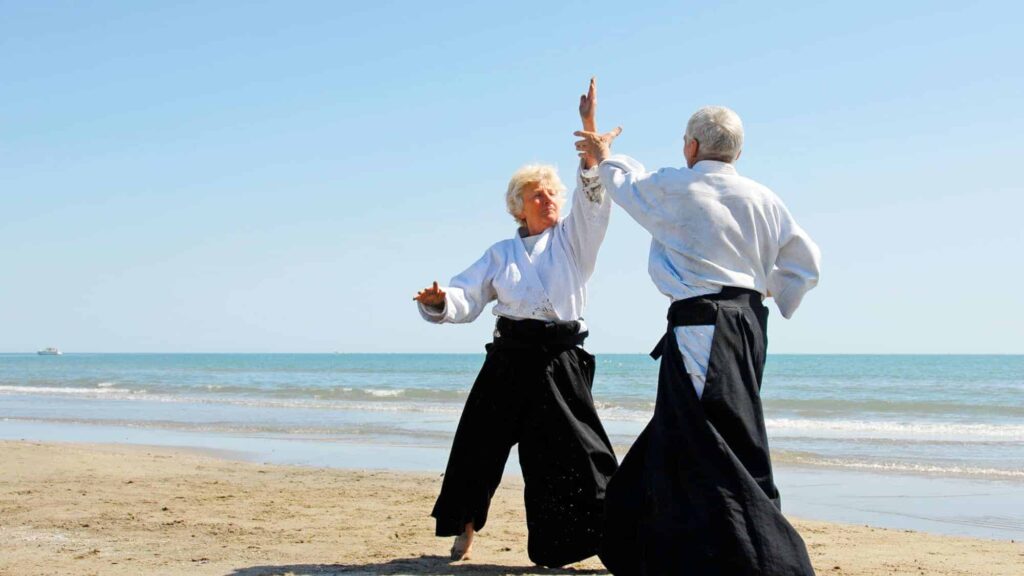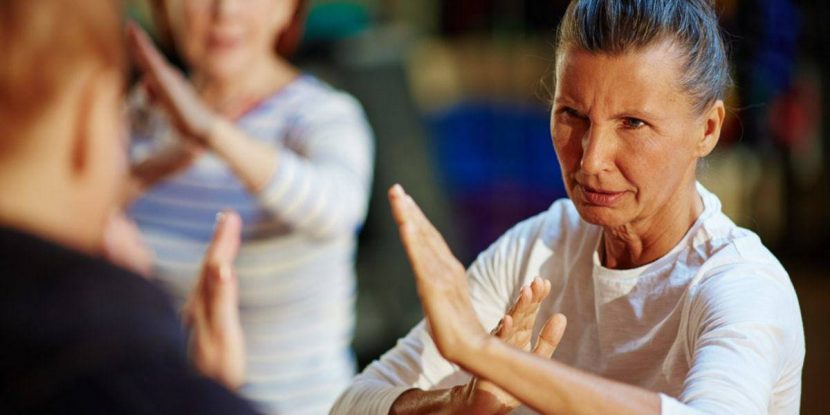When you think about staying active after 60, what comes to mind?
For most of us, it’s a brisk walk in the park or a few gentle laps in the pool. And these are fantastic, classic choices.
But what if the most effective path to vitality in your later years is something completely different? Groundbreaking research from Harvard Medical School suggests just that.
As we age, our bodies naturally begin to lose muscle mass and strength. This process, called sarcopenia, accelerates after 60. It can lead to decreased mobility and a higher risk of falls.
While any movement is good, Harvard experts have identified a specific type of exercise that does more than just get your heart rate up. It builds functional strength, sharpens your mind, and protects your bones.
Forget what you thought you knew. Let’s explore the real benefits of tai chi for seniors and why it might be the best way to keep fit after 60.
Contents
Why It’s Time to Look Beyond Walking and Swimming

Walking is simple and accessible. It improves heart health, strengthens bones, and boosts your mood. Swimming is a wonderful, low-impact exercise that is easy on the joints and builds endurance.
Both are excellent for your health. However, as we get older, our fitness needs become more complex. We need exercises that specifically target balance, functional strength, and cognitive sharpness. This is where walking and swimming can fall short.
While walking is a weight-bearing activity, it doesn’t always challenge our balance or engage the mind in complex ways.
Swimming, on the other hand, is not a weight-bearing exercise. The water’s buoyancy is great for joints but does less to stimulate bone growth, which is crucial for fighting osteoporosis.
However, Harvard’s got an alternative for the older folks; something that may come as a shocker.
Also Read: Just Eat These Every Day Like Japan’s Oldest Doctors – Science Says You Could Live to 100
The Harvard-Backed Solution: The Best Way to Keep Fit After 60
When you hear “martial arts,” you might picture high kicks and intense sparring. But the practices recommended by Harvard researchers—specifically Tai Chi, Aikido, and Wing Chun—are the complete opposite. They are about control, mindfulness, and slow, deliberate movements.
These ancient arts are a form of low-impact exercise for seniors that builds strength from the inside out. They are designed to be gentle on the joints while providing a full-body workout.
They improve what researchers call “physiological complexity”: your body’s ability to adapt and respond to change, a key marker of healthy aging.
Tai Chi: The Ultimate Mind-Body Workout

Tai Chi is the most studied and widely recommended of these practices. Often described as “meditation in motion,” it involves a series of slow, flowing movements coordinated with deep breathing.
Dr. Peter M. Wayne, a researcher at Harvard Medical School, has extensively studied its effects on aging. His work confirms that the benefits of tai chi for seniors are profound.
Building Strength and Fighting Muscle Loss
Sarcopenia is a serious concern, but it’s not inevitable. Tai Chi’s slow, controlled movements engage and strengthen the muscles in your legs and core. It’s about developing functional strength—the strength you need for everyday activities like carrying groceries, climbing stairs, and getting up from a chair.
Mastering Balance and Preventing Falls
A fall can be a life-altering event for an older adult. Tai Chi is one of the most effective exercises for fall prevention. The constant, gentle shifting of weight from one leg to another trains your body’s balance system. It improves your coordination and helps your body stay responsive.
Harvard research shows that balance is both a physical and a mental task. Tai Chi trains both, improving your ability to stay steady even when you’re distracted.
Boosting Bone Density
Osteoporosis, or the thinning of bones, increases the risk of fractures. To combat this, you need weight-bearing exercises that gently stress the bones, signaling them to rebuild.
Tai Chi is a perfect example. As a weight-bearing, low-impact exercise for seniors, it stimulates bone-forming cells, which can help improve bone density and manage osteoporosis.
Sharpening Your Mind
Unlike repetitive exercises, Tai Chi requires focus and memory. Learning and performing the sequences of movements called “forms” is a fantastic workout for your brain.
Studies show this practice can boost memory, concentration, and executive functions like planning and problem-solving. It keeps your mind active and engaged, which is just as important as keeping your body moving.
Calming the Spirit and Improving Sleep
The gentle movements and focus on deep breathing have a powerful calming effect on the nervous system. This helps to reduce stress, lift your mood, and improve your overall sense of well-being.
Many practitioners also report a significant improvement in their sleep quality, helping them feel more rested and energized.
Exploring Other Gentle Martial Arts
While Tai Chi gets most of the spotlight, Harvard also recommends two other excellent practices. These offer similar benefits and might be the best way to keep fit after 60 for those seeking a slightly different approach.
Also see: These 6 Foods Will Burn Fat and Heal Your Body, Says a Fasting and Nutrition Expert
Aikido: The Way of Harmony

Aikido is a Japanese martial art that focuses on blending with an opponent’s motion rather than confronting it with force.
For seniors, the practice is adapted to be gentle and non-competitive. It is excellent for improving flexibility, coordination, and mobility.
A unique aspect of Aikido training is learning how to fall safely, a skill that can be invaluable in preventing injury.
Wing Chun: The Power of Technique

Wing Chun is a style of Kung Fu known for its efficiency and practicality. It emphasizes technique and body structure over brute strength, making it ideal for older adults.
The practice improves reflexes, enhances posture, and builds stability through its unique stances and hand movements. It’s a fantastic way to build confidence and body awareness.
How to Get Started Safely and Confidently
Feeling inspired to give it a try? Starting a new exercise routine can feel intimidating, but these martial arts are designed to be accessible to everyone, regardless of age or fitness level.
Consult Your Doctor: Before beginning any new exercise program, it’s always wise to speak with your doctor to make sure it’s a safe choice for you.
Find a Qualified Instructor: Look for an instructor who has experience teaching older adults. They will know how to modify movements to suit your abilities. Many community centers, senior centers, and YMCAs offer beginner Tai Chi classes. You can also search for certified instructors online through organizations like the Tai Chi for Health Institute.
What to Expect in Your First Class: A beginner’s class will be slow-paced and welcoming. The focus will be on learning basic postures and movements. You’ll be encouraged to listen to your body and only do what feels comfortable. Wear loose, comfortable clothing and be prepared to relax and have fun.
Embrace the Social Connection: One of the most overlooked benefits of these classes is the sense of community. Practicing in a group is a wonderful way to stay socially connected, which is vital for emotional health and motivation.
Also Read: Want to Be Smarter? Read These 11 Books That Reprogram Your Brain
A New Path to Lifelong Fitness
While a daily walk or swim is certainly beneficial, the science is clear: to truly thrive, we need more.
According to Harvard’s extensive research, gentle martial arts can indeed address the challenges of aging. They build strength, secure balance, protect bones, and sharpen the mind.
So, why not take a step onto a new path and add some more years to your retirement life?
